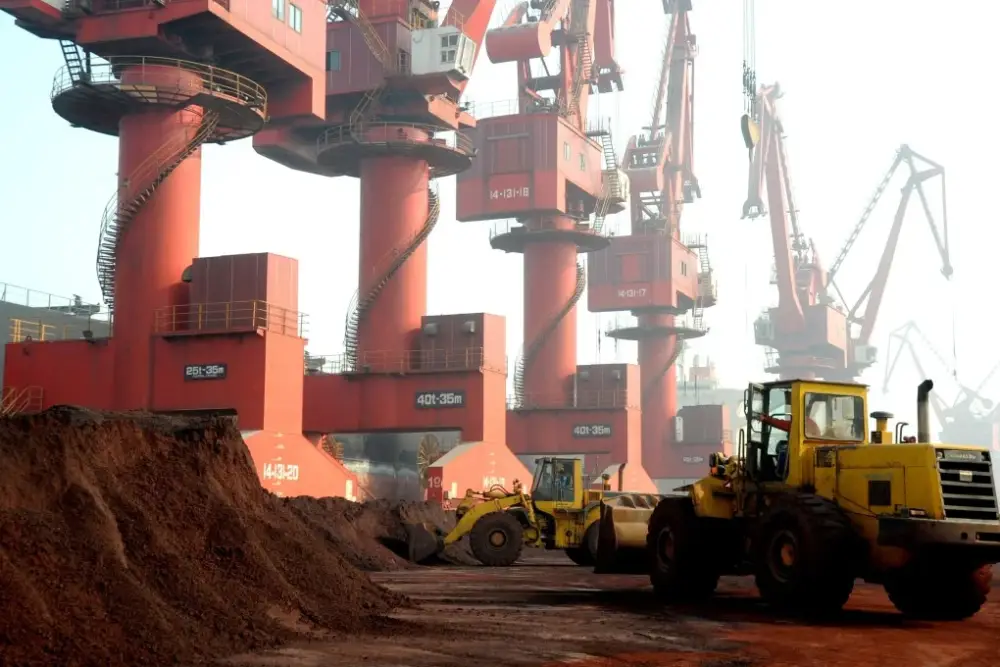
Trung Quốc tăng cường trấn áp buôn lậu khoáng sản chiến lược như đất hiếm, antimon và vonfram
-
Trung Quốc vừa bắt giữ nhiều nghi phạm buôn lậu khoáng sản chiến lược, đồng thời tuyên bố siết chặt kiểm soát xuất khẩu trong bối cảnh các hành vi buôn lậu ngày càng tinh vi, đe dọa an ninh quốc gia.
-
Cuộc họp cấp cao về kiểm soát xuất khẩu diễn ra tại Nam Ninh (Quảng Tây) – vùng giàu tài nguyên như antimon, vonfram và đất hiếm, có sự tham gia của nhiều bộ ngành chủ chốt: Bộ Thương mại, Công an, An ninh Quốc gia, Hải quan, Toà án Tối cao và Viện Kiểm sát Tối cao.
-
Chiến dịch trấn áp khởi động từ tháng 5 đã dẫn đến nhiều vụ bắt giữ, dù số liệu chưa được công bố. Một trung tâm phối hợp và cưỡng chế liên ngành về xuất khẩu hàng song dụng đang được lên kế hoạch thành lập.
-
Chính quyền cảnh báo rằng các đối tượng buôn lậu hợp tác với cá nhân/đơn vị nước ngoài, sử dụng thủ đoạn tinh vi như khai sai loại hàng, ngụy trang, hoặc trung chuyển qua nước thứ ba để né kiểm tra.
-
Bộ An ninh Quốc gia cũng vừa lên tiếng tố cáo gián điệp nước ngoài dùng hệ thống bưu điện Trung Quốc để đánh cắp đất hiếm, bằng cách dán nhãn giả là hàng hoá thông thường hoặc không bị kiểm soát.
-
Danh sách cấm xuất khẩu sẽ được mở rộng, bao gồm các đối tác nước ngoài cố tình né tránh quy định xuất khẩu. Hướng dẫn tuân thủ xuất khẩu khoáng sản chiến lược cũng sẽ được ban hành, yêu cầu nhà xuất khẩu thực hiện rà soát và chứng minh hàng không phục vụ mục đích quân sự.
-
Việc kiểm soát đất hiếm, antimon và vonfram – những nguyên liệu song dụng – là trụ cột trong chiến lược tự chủ tài nguyên của Bắc Kinh, giúp duy trì vị thế trong các lĩnh vực như AI, bán dẫn, quốc phòng và năng lượng mới.
📌 Trung Quốc đang gia tăng trấn áp buôn lậu khoáng sản chiến lược như đất hiếm, antimon và vonfram – các nguyên liệu thiết yếu cho AI, chip bán dẫn và công nghệ quân sự. Chiến dịch đặc biệt từ tháng 5 đã bắt giữ nhiều nghi phạm, trong bối cảnh các thủ đoạn buôn lậu trở nên tinh vi như ngụy trang, khai sai hàng hóa, hoặc trung chuyển qua nước thứ ba. Chính quyền Trung Quốc sẽ thành lập trung tâm liên ngành kiểm soát xuất khẩu và mở rộng danh sách hạn chế đối tác nước ngoài, đồng thời yêu cầu nhà xuất khẩu chứng minh hàng không phục vụ mục đích quân sự. Trong khi đó, Trung Quốc tiếp tục duy trì ưu thế tuyệt đối trong chuỗi cung ứng khoáng sản toàn cầu, sử dụng vị thế này làm đòn bẩy thương mại.
https://www.scmp.com/news/china/diplomacy/article/3318865/china-cracks-down-rare-earth-smugglers-vowing-stronger-export-controls
China ramps up crackdown on strategic mineral smugglers, vows stronger export controls
This came a day after China’s top anti-spying watchdog, the Ministry of State Security, warned that foreign agents were using China’s postal system to “steal” rare earths.
Thảo luận
Follow Us
Tin phổ biến



